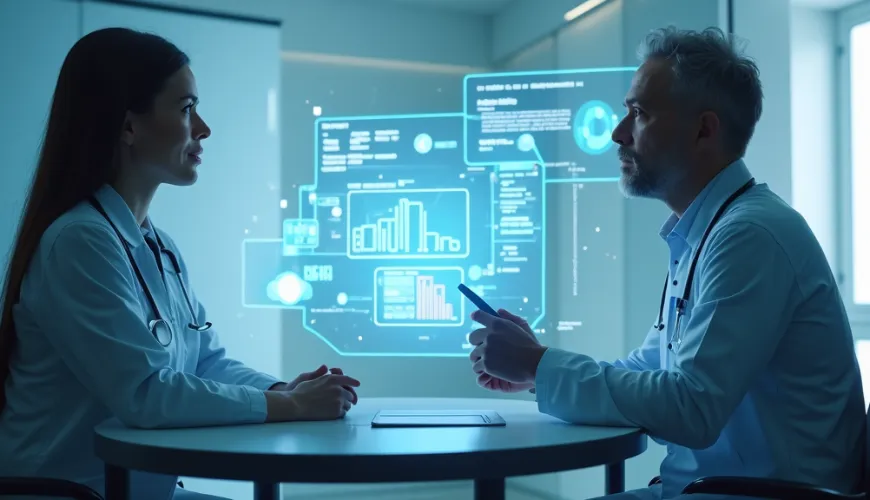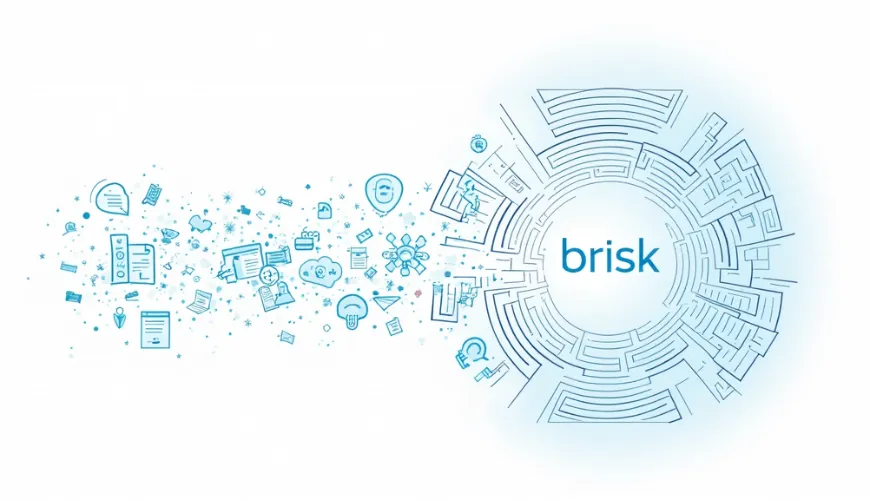What Is Heidi AI? Your Guide to the AI Medical Scribe That's Changing Healthcare
TL;DR Heidi AI drafts your clinical notes in real time. It works with all major EHRs (Epic & Cerner integrations are in private beta). Documentation time drops by ≈ 70 %, so you can focus on patients, not paperwork.
In the fast-paced world of modern medicine, every second matters. Physicians face the constant challenge of balancing quality patient care with the mountain of clinical documentation required for every visit. That's where Heidi AI steps in—an AI-powered medical scribe that's helping clinicians nationwide reclaim their time, reduce burnout, and focus more on what truly matters: their patients.
Let's deep dive into what makes Heidi AI stand out, how it works, and why it's creating such a buzz in clinics and hospitals alike.
What Is Heidi AI?
Heidi AI is an innovative, AI-driven medical scribe assistant designed to support healthcare professionals by automating the process of clinical documentation. Powered by advanced natural language processing (NLP) and machine learning algorithms, Heidi listens to conversations between doctors and patients (with consent) and transforms them into accurate, structured clinical notes.
From SOAP notes to billing codes and EHR summaries, Heidi can handle the tedious back-end work that used to take hours. It's like having a highly efficient virtual scribe that doesn't call in sick, doesn't get tired, and never misses a detail.
Why Was Heidi AI Developed?
The rise of digital health records brought many improvements but also introduced a new layer of complexity and burden on clinicians. According to a 2022 study published in JAMA Internal Medicine, doctors now spend nearly twice as much time on EHRs and documentation as they do with patients. This imbalance has led to increased burnout, lower job satisfaction, and even early retirements.
Heidi AI was built to reverse that trend. By automating clinical documentation it lets physicians spend far less time on administrative tasks, lightens their cognitive load, improves note accuracy and consistency, and ultimately boosts productivity without sacrificing care quality.
How Does Heidi AI Work?
Heidi AI integrates seamlessly into clinical workflows. During a consultation, the AI listens passively in the background, identifying medical terms, diagnoses, patient complaints, and physician observations. It then organizes everything into structured sections such as the HPI and ROS, automatically builds the assessment & plan, and even suggests ICD‑10/CPT codes—producing a near‑final note that is ready for physician sign‑off.
The platform uses advanced AI models similar to those found in ChatGPT or Claude, but they're specially fine-tuned for the medical context. After the visit, clinicians can review and edit the AI-generated notes before they're uploaded to the Electronic Health Record (EHR) system.
Real-Life Example
Imagine Dr. Smith, a busy family physician seeing 25 patients a day. Before Heidi, she spent 3 hours every evening finishing notes. Now, Heidi drafts her notes in real-time during patient visits. By the time she walks out of the exam room, her documentation is 90% complete. She heads home by 6 PM instead of 9.
Key Features of Heidi AI
1. Real-time Documentation
Heidi AI listens in real-time and begins building the patient note as the conversation unfolds, which means no more backtracking or memory-based entries.
2. EHR Compatibility
Heidi exports finished notes into any EHR via copy-paste or FHIR; direct integrations exist for Athenahealth, Best Practice, and MediRecords, while Epic and Cerner are currently in private beta.
3. Built-in Medical Intelligence
With a deep understanding of clinical language, Heidi can distinguish between casual conversation and medically relevant data, flagging important symptoms, red flags, and differential diagnoses.
4. Compliance and Security
Privacy is critical in healthcare, and Heidi AI complies with HIPAA and other data protection standards to ensure patient information is safe.
5. Multi-specialty Support
Whether you're a cardiologist, pediatrician, psychiatrist, or general practitioner, Heidi's algorithms are optimized for different specialties and clinical settings.
Pricing & Plans
Heidi AI follows a transparent subscription model: a Free‑Forever tier that lets you generate unlimited notes (standard processing speed and 10 Pro Actions/month) and Heidi Pro at US $99 per provider per month (or US $799 annually), which unlocks unlimited notes, advanced analytics, and priority support. Compared with hiring a human scribe at ≈ US $25 000 per year, even the paid plan pays for itself after a single reclaimed clinic day each month.
Who's Using Heidi AI?
Hospitals, private practices, urgent care centers, and telehealth services across the U.S. are adopting Heidi AI. Usage spans a broad spectrum of specialties—from family and internal medicine clinics to emergency departments, behavioral‑health practices, pediatrics, and even physical‑therapy centers—demonstrating that Heidi AI adapts well beyond primary care.
In fact, a growing number of rural clinics have turned to Heidi AI to combat physician shortages and reduce overwork, allowing them to provide quality care without expanding staff.
Benefits of Using Heidi AI
The advantages go well beyond time‑savings. Clinicians report reduced burnout and better work‑life balance, higher‑quality patient interactions thanks to improved eye contact, and clean, compliant notes that speed up reimbursements and scale effortlessly as visit volumes grow.
How Does Heidi Compare to Other AI Medical Scribes?
There are several AI scribe tools on the market today—Suki, DeepScribe, and Augmedix to name a few. But Heidi AI sets itself apart with its speed, ease of use, and specialty-based customization.
Here's a quick comparison:
| Feature | Heidi AI | Suki | DeepScribe |
|---|---|---|---|
| Real-time Note Creation | ✅ | ✅ | ❌ |
| EHR Integration | ✅ | ✅ | ✅ |
| Multi-specialty Support | ✅ | Limited | Limited |
| HIPAA Compliance | ✅ | ✅ | ✅ |
| Custom Note Templates | ✅ | ✅ | ❌ |
| Price Transparency | ✅ | ❌ | ❌ |
Heidi also offers more transparent pricing options and better on-boarding support, especially for smaller practices unable to afford major tech investments.
Common Concerns and Misunderstandings
It's natural for healthcare providers to have concerns about introducing AI into clinical environments. Here are a few common ones—and how Heidi addresses them:
-
"Will it replace medical staff?"
Not at all. Heidi is designed to assist, not replace. It enhances productivity and allows staff to focus on patient care. -
"What if it gets something wrong?"
Clinicians always have the final say. Notes are drafts that can be edited before final submission. -
"Is it secure?"
Yes. Heidi AI uses enterprise-grade encryption and maintains HIPAA compliance at every level of operation.
Heidi AI in Telemedicine
With the explosion of telehealth, Heidi AI has proven especially useful in virtual care environments. Since conversations are already digital, the AI can easily extract and compile notes without needing microphones, headsets, or complex hardware setups.
A therapist conducting a 50-minute video session can let Heidi run in the background. By the time the session ends, the therapist has a clean, detailed progress note ready to go—freeing up mental bandwidth for the next patient.
Getting Started With Heidi AI
If you're considering improving your documentation workflow without hiring additional staff, Heidi AI is easy to try. Most providers can be up and running within a week.
Getting started is straightforward: schedule a live demo, select your specialty so the templates fit your workflow, connect Heidi AI to your EHR, and run a short onboarding session. From that point you can begin documenting smarter—much like you would deploy any productivity booster such as the best‑chatgpt‑plugins that Claila already covers.
Future of AI in Clinical Documentation
It's becoming clear that AI-powered scribes like Heidi are not just a trend—they're a glimpse into the future of healthcare. As models become more sophisticated and better trained on clinical language, we can expect even more seamless integration and automation.
Imagine an AI that not only writes your notes but also reminds you of follow-ups, flags abnormal patterns across patients, and helps you make more informed decisions. Tools like Heidi are laying that groundwork.
According to an Accenture analysis, AI applications could save the U.S. healthcare system about $150 billion per year by 2026 through workflow and administrative automation.
FAQ
Is Heidi AI HIPAA‑compliant?
Yes. All data are encrypted (TLS 1.3 in transit, AES‑256 at rest) and processed in HIPAA‑certified environments. For additional privacy and security tips, see our guide on ai-detectors-the-future-of-digital-security.
Does it integrate with Epic?
An Epic App Orchard module is in private beta; until the public release, you can export notes via copy-paste or FHIR push.
Can I use Heidi AI for tele‑psychiatry notes?
Absolutely. Behavioral‑health templates were updated in March 2025 and meet APA documentation standards—similar to how humanize-your-ai-for-better-user-experience emphasizes empathetic language.
What languages are supported?
English is fully supported; Spanish note‑drafting is in closed beta.
Wrapping It All Up
Healthcare shouldn't be about paperwork—it should be about people. Heidi AI is proving that artificial intelligence, when thoughtfully applied, can help doctors take back their time, reduce stress, and provide better care without sacrificing accuracy or compliance.
Whether you manage a large hospital or a solo practice, now is the perfect moment to see what Heidi AI can do for you—just as many readers did after exploring tools like chatpdf.
The best kind of technology fades into the background and simply makes your life easier.



